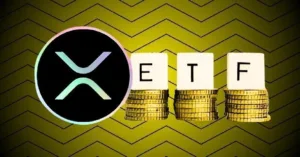Accounting tokens are essentially tokenized credit or debit entries (IOU/UOM), just like any spreadsheet-based accounting system.
Accounting tokens are best understood when you think of blockchain as a “distributed ledger.” They are an alternative to stablecoins, helping businesses to stay compliant. Stablecoins are a regulator’s nightmare because they act like cash and can be used anonymously and globally. As a result, many jurisdictions treat stablecoins like the financial products they resemble, heavily regulating their use.
Accounting tokens are essentially tokenized credit or debit entries (IOU/UOM), just like any spreadsheet-based accounting system. They are only for accounting purposes, representing the amount of money owed by the token holder. It is not backed by FIAT like stablecoins, and so cannot be treated as a financial product. This solution works well with a limited number of settlement partners. In fact, with a small enough number, the entire process can be settled on the blockchain, using the token’s smart contract. These accounting tokens don’t have to only represent currency; they can also represent goods or services equaling the amount of the accounted value, not unlike a good old-fashioned coupon. Practically speaking, they work just like coupons.
Thanks to the nature of blockchain technology, this process is also very secure and compliant. Businesses can restrict possible token holders through implementing a KYC/AML process, adding documentation, and keeping the whole process transparent on a public blockchain since that is essentially what these tokens are – credit/debit entries on a distributed ledger.
Johannes Schweifer is the CEO of CoreLedger, a company empowering businesses of all sizes to access the benefits of blockchain technology. Schweifer co-founded several blockchain start-ups, including Bitcoin Suisse. He’s a passionate problem-solver, holding a master’s degree in Chemistry and a Ph.D. in distributed computing and quantum chemistry.




